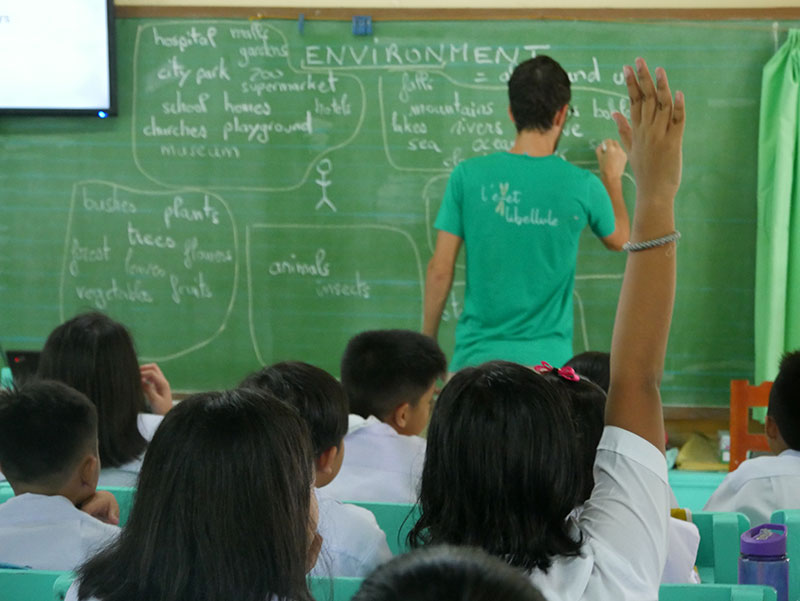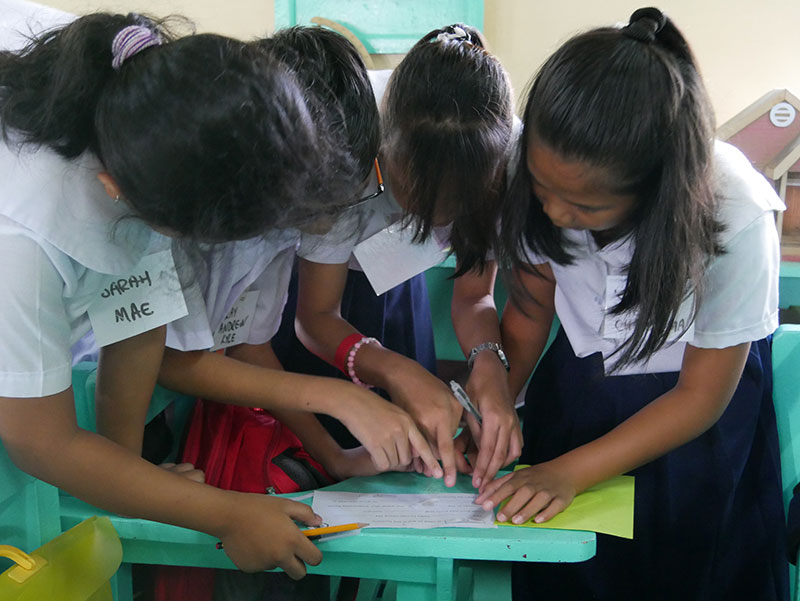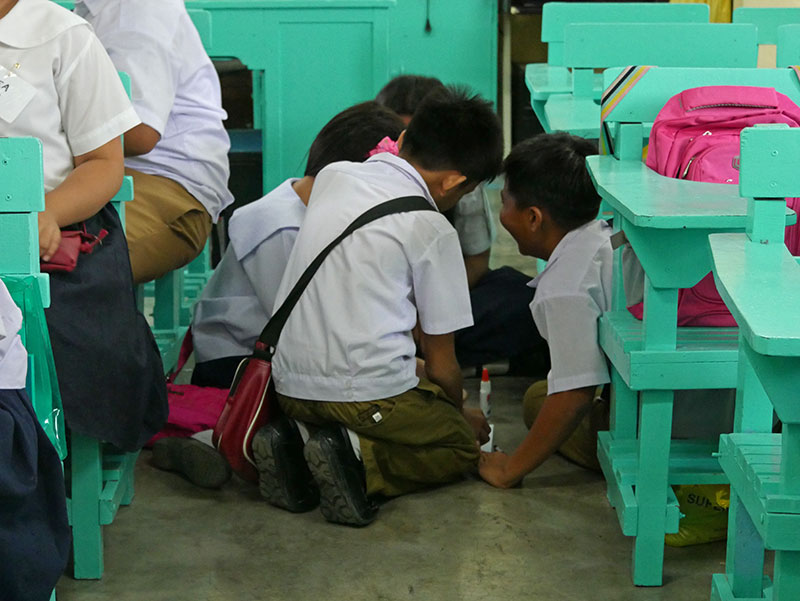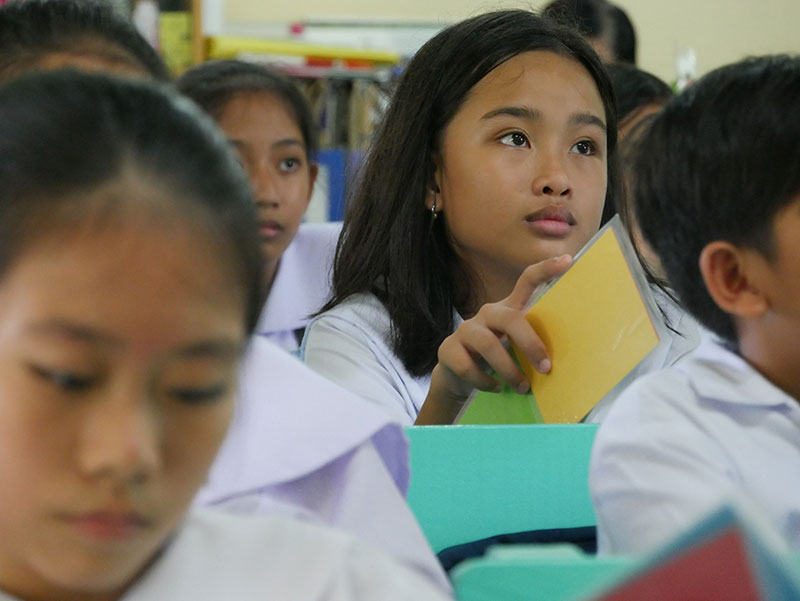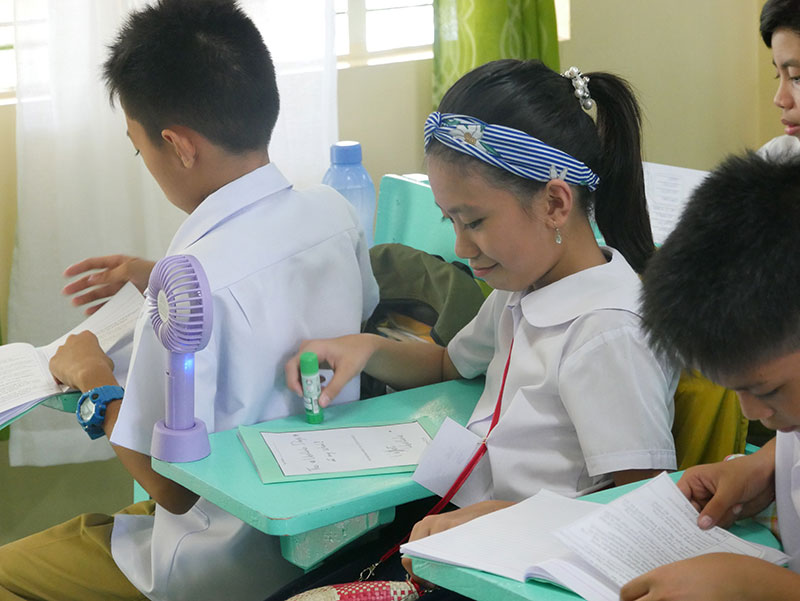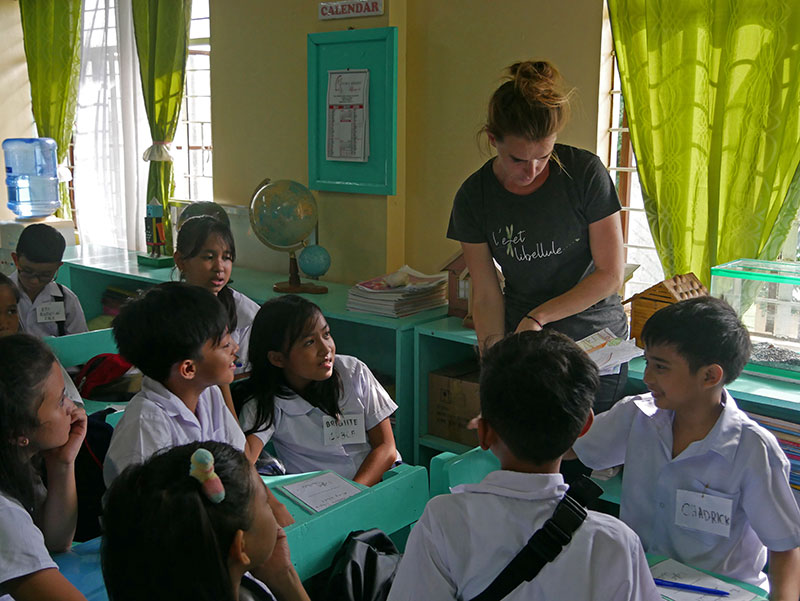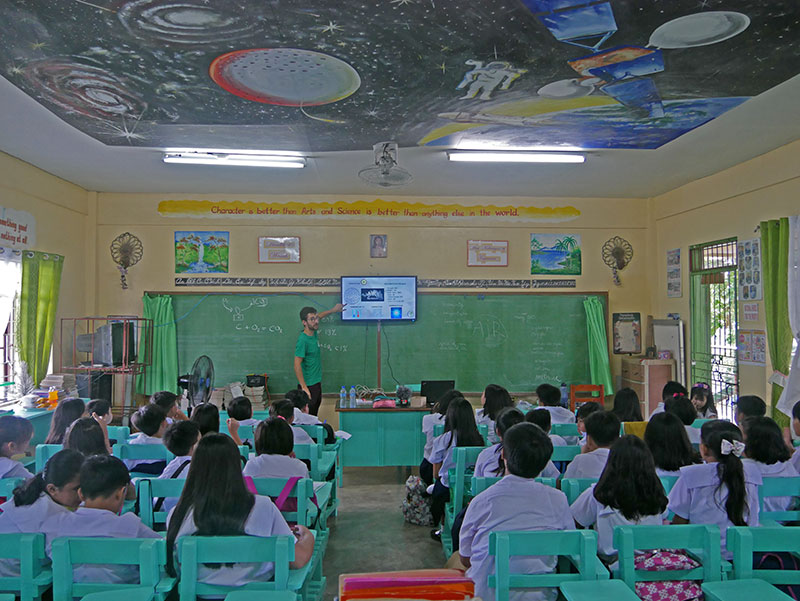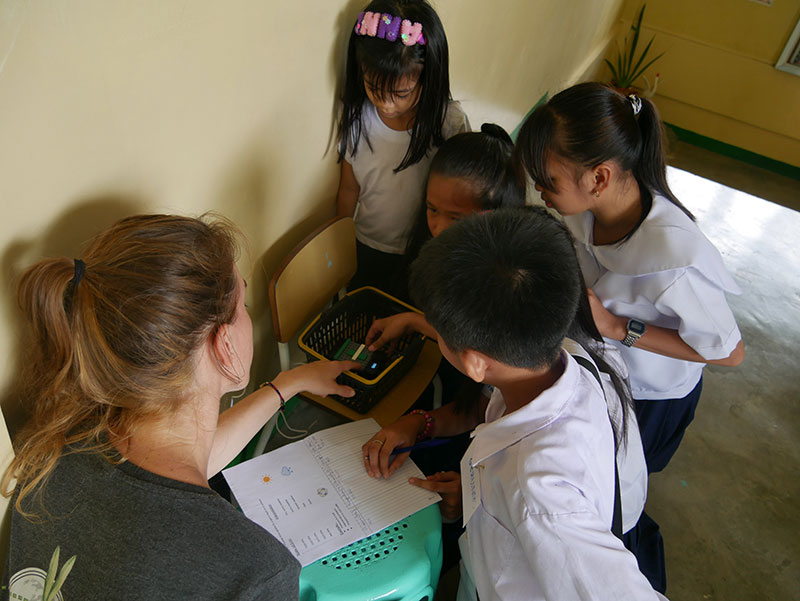Summary
South of Luzon, in the city of Pagbilao, we are welcomed by Gery and Maydee, a Franco-Philippine couple who help us to get in touch with the largest school in the city with 1500 students.
In the Philippines, education is managed by the district and if the school does not have the agreement of the coordinator, it is impossible to open its doors to external actors. Once the authorization of the hierarchy has been granted, we meet the next Libellule class for the first time. It is the week of the resumption of classes after the summer holidays!
In this school, the week begins with the flag raising and each day begins with a "human education" class, which consists of singing the national anthem or other patriotic songs in chorus. On the walls of the classroom, national heroes are honoured. By the way, we have a better understanding of why Filipinos are so comfortable in karaoke - an extremely popular hobby here!
Each teacher works in pairs with a "co-teacher". There is even a teacher dedicated to students with disabilities.
We are impressed by the level of English (one of the country's official languages), maturity, autonomy and knowledge of the students. We quickly understand that this is the "fast learners" class, i.e. students who have passed certain tests and are brought together in the same class. They dream of becoming architects, electrical engineers, civil or mechanical engineers, teachers,... trades to build the Philippines and the World of tomorrow.
It is therefore in very pleasant conditions that we set up the various workshops. Students have a real knowledge of their country's biodiversity, and easily understand the link between human activity and imbalance in natural ecosystems. In this region where the garbage truck is a simple dump truck, we see everywhere garbage bins divided into 3 bins, selective sorting is widely encouraged. Many recent political decisions have encouraged the preservation of endangered species, both fauna and flora. Some islands, for example, have been banned from mass tourism, such as Boracay. It would seem that there is a willingness to include this ecological dynamic in the education of Filipino students, as illustrated by a latest draft law, asking each student to plant 10 trees to obtain their diploma and thus combat the massive deforestation of the past years.
The students' questions are very interesting and testify to their very broad vision of environmental issues down to the sidereal scale - it must be said that they are in daily contact with the stars and rockets painted on the ceiling of the classroom. Some are wondering about solutions to reduce climate change or overpopulation while others are wondering what would happen if the moon disappeared! They propose to replant trees to avoid flooding or to close factories that destroy ozone in the atmosphere.
The teacher Mrs. Ramos and the students welcomed us with great attention and we leave with our arms full of drawings, paper flowers and sweets! This first glimpse of school life in the Philippines, so far from what we know in France, was a rich experience and an optimistic glow for the future of these children who seem to have understood many things from the age of 11!
